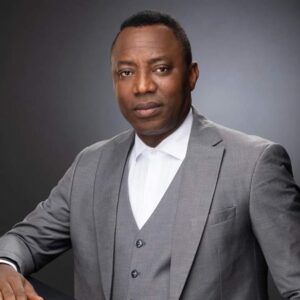
President Tinubu Allegedly Acquires New Private Jet
Sowore Omoyele posted:
“While they are telling you to “exercise patience” @officialasiwajubat already bought a $100m Presidential Jet and configured or reconfigured it with some $50million and it is ready for delivery! The jet is an A330-200 initially christened VP-CAC is now registered as 5N-FGA.
This was not in the annual budget, they can’t pay minimum wage for workers but could afford $150m for a private jet, students have to obtain loans to go to college but they could afford to approve billions for hajj even as the money/ies ended up being stolen.
Fight we MUST! #RevolutionNow”
The Reality Behind the Presidential Jet: Unpacking Omoyele Sowore’s Facebook Post
Recently, a provocative Facebook post by activist and former presidential aspirant Comr. Omoyele Sowore stirred significant controversy and debate across social media platforms. In his post, Sowore highlights a contentious issue that strikes at the heart of public accountability and fiscal responsibility in Nigeria: the acquisition of a $150 million Presidential Jet amid broader economic challenges.

Unveiling the Allegations
Sowore’s post begins with a sharp critique of governmental priorities, juxtaposing the directive to “exercise patience” with the purported acquisition of a $100 million jet, subsequently upgraded with an additional $50 million. The aircraft, originally identified as VP-CAC, has been re-registered as 5N-FGA, a move that has raised eyebrows given its significant cost and the context of Nigeria’s economic landscape.
Fiscal Responsibility and Public Perception
Central to Sowore’s argument is the assertion that such expenditures were not budgeted for, contrasting starkly with ongoing financial constraints affecting essential sectors. He draws attention to the irony of inadequate funding for minimum wage increases and educational subsidies, juxtaposed against substantial allocations for luxury items like a presidential jet and extravagant Hajj allowances. These points resonate deeply within a populace grappling with economic hardship and growing disillusionment with governmental stewardship.
The Role of Accountability
Sowore’s call to action—”Fight we MUST!”—encourages a critical examination of governance practices and the imperative for transparency in public expenditures. His words echo sentiments expressed by many Nigerians who demand greater accountability from elected officials. The need for robust oversight mechanisms becomes apparent, ensuring that public funds are judiciously allocated to address pressing societal needs rather than perceived luxuries.
Contextualizing the Debate
To fully understand the implications of Sowore’s claims, it is crucial to delve into the broader socioeconomic context of Nigeria. Despite being a resource-rich nation, mismanagement, corruption, and inconsistent governance have hindered equitable development. The stark inequality between lavish government expenditures and inadequate public services underscores a systemic issue that requires systemic solutions.
Public Reaction and Political Ramifications
In response to Sowore’s post, public sentiment has been polarized. Supporters laud his outspokenness and advocacy for fiscal prudence, viewing his statements as a rallying cry against governmental excesses. Conversely, critics may dismiss his allegations as politically motivated or lacking substantiation, emphasizing the complexities of governing a nation with diverse needs and competing priorities.
Looking Forward: Toward Accountability and Reform
Moving forward, Sowore’s post serves as a catalyst for broader discussions on governance reform and accountability in Nigeria. It prompts citizens to engage actively in monitoring public expenditures, advocating for policies that prioritize sustainable development and equitable distribution of resources. The role of civil society, media, and grassroots movements becomes pivotal in holding leaders accountable and fostering a culture of transparency.
Omoyele Sowore’s Facebook post encapsulates more than just a critique of governmental spending—it symbolizes a call to action for a more accountable and responsive governance framework in Nigeria. As debates unfold and reactions continue to reverberate, the ultimate challenge lies in transforming outrage into constructive dialogue and tangible reform. By harnessing collective voices and civic engagement, Nigerians can strive towards a future where public resources are managed responsibly for the benefit of all citizens.
In essence, Sowore’s words ignite a flame of civic consciousness, urging Nigerians to question, demand answers, and actively participate in shaping a more just and equitable society.





Add comment